Workshop Speakers
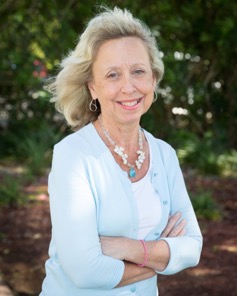
Dr. Meade is a Senior Member at Moffitt Cancer Center in the Division of Population Science, Health Outcomes & Behavior Program. Her research interests span cancer prevention to survivorship, and aims to bring information, services and scientific advancements ‘right back to the community’ in ways that are understandable and meaningful. This work entails the use of community-based participatory methods and focuses on building sustained community partnerships and multi-institutional relationships for improved health that take into account culture and literacy. Dr. Meade aims to improve health care access and promote cancer prevention among vulnerable and at-risk populations.
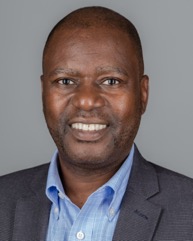
Clement K. Gwede, PhD, MPH, RN, FAAN: Dr. Gwede is a Senior Member at Moffitt Cancer Center. He is a community-minded behavioral scientist whose research portfolio is diverse and has included efforts to address the challenges medically-underserved populations face when making informed decisions about colorectal, prostate, and cervical cancer screenings and biobanking. He has extensive experience developing, conducting and evaluating CBPR informed interventions.

David Schwartz is Professor and Chairman in the Department of Radiation Oncology at the UTHSC College of Medicine. Dr. Schwartz is a nationally recognized physician researcher whose current work aims to improve the treatment and survivorship of cancer patients, regardless of social or financial status. He serves as founding Director of the Center for Health Equity in the Department of Radiation Oncology, with a focus on developing patient-facing mobile technology to improve quality and access of cancer care in the Mid-South. He engages closely with (and learns from) dozens of academic, business, education, and city leaders throughout Memphis to discover data driven, community-inspired paths to better health, for everyone.

Dr. Scarinci is a Professor and Associate Director of Globalization and Cancer at the University of Alabama at Birmingham O’Neal Comprehensive Cancer Center. Her research has focused on development, implementation, and evaluation of evidence-based, culturally-relevant cancer- prevention and control interventions among underserved, rural, racial/ethnic minority, and immigrant populations in the US and low-resource settings globally.

Dr. Rosenthal is Associate Professor of Pediatrics and Director of Education in the Center for Research and Engagement at Yale University School of Medicine. She also is Co-Director of the National Clinician Scholars Program. Her research focuses on barriers that cause inequities in health education and behavior. In addition to clinical work, Dr. Rosenthal conducts CBPR research and teaches CBPR to medicine fellows and community members.
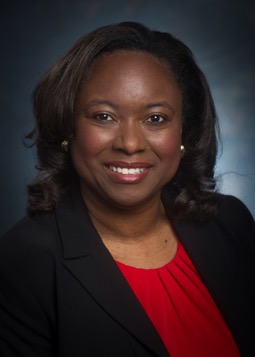
Dr. Baskin serves as Professor and Vice Chair for Culture and Diversity at the University of Alabama at Birmingham (UAB) and Associate Director for Community Outreach and Engagement at the O’Neal Comprehensive Cancer Center at UAB . She has dedicated her career to addressing health disparities through cancer prevention in African Americans, applying community-based research principles in order to promote health equity. Dr. Baskin has specifically focused on obesity and related health behaviors among African American women in the Deep South.

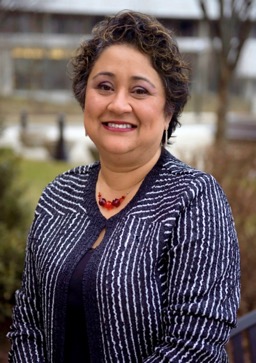
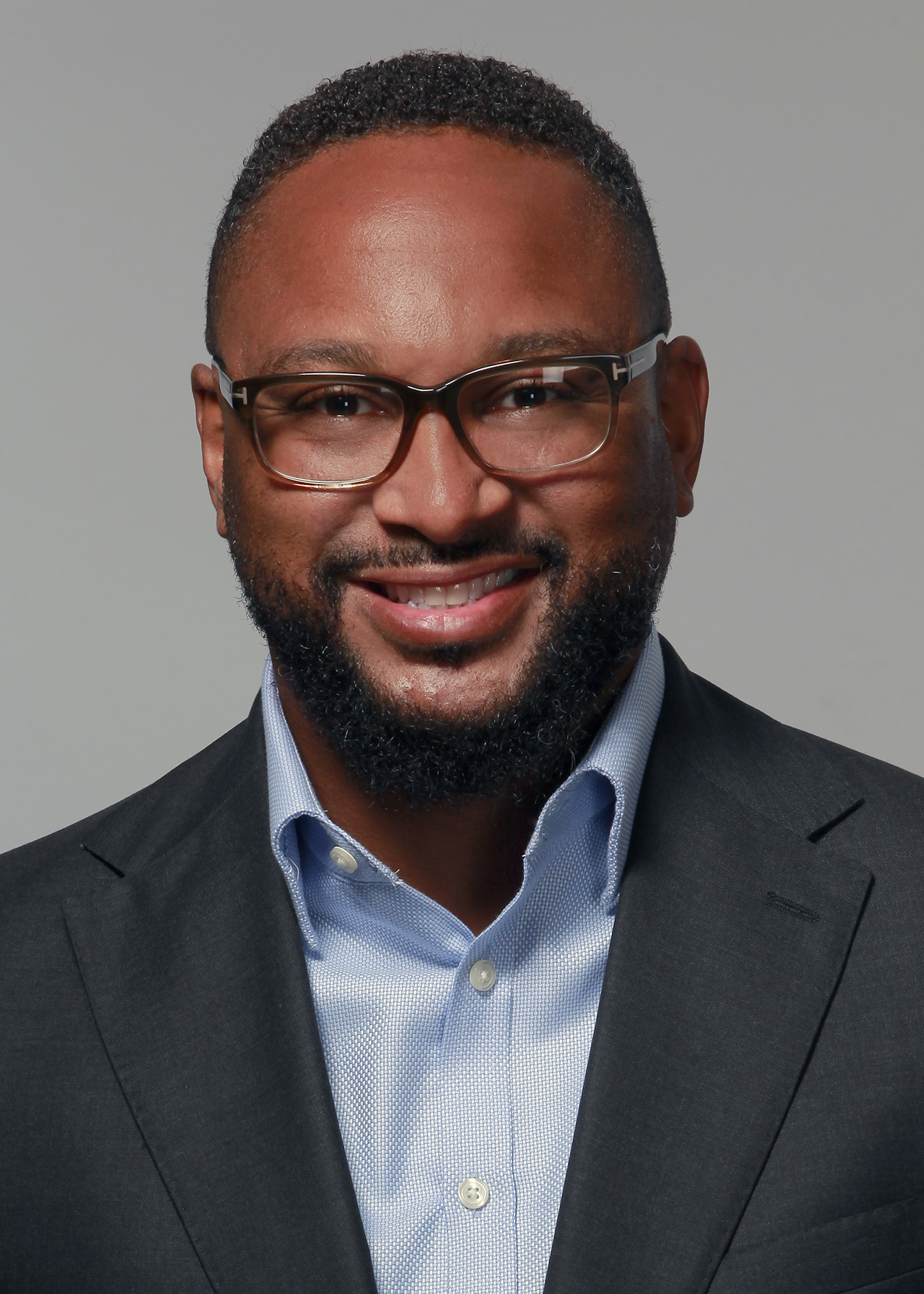
Mr. Barrett is the Chief Executive Officer of the Keep Loving Each Other Community Family Life Center, a non-profit organization in the Washington Park community (Chicago). He also plays an active role in various development projects in Chicago. In the past, he served as Director of Public Engagement for the Life Center Church of God in Christ for 10 years. As a community partner, he collaborates with Dr. Monica Peek to improve health outcomes and reduce health disparities on the South Side of Chicago.

Dr. Christopher Dant is a PhD-trained investigator and consultant in the biomedical field. Early in his career, he was an investigator at three high-performance laboratories at Indiana University, the University of Michigan and Vermont, and at Stanford. Early in his postgraduate career, he apprenticed as one of the Senior Editors at JAMA and became as a Principal Scientist at NASA's Life Sciences Division and Department of Energy, where he worked with young investigators to obtain federal grants and write manuscripts for peer-reviewed journals. Until this past year, Dr. Dant served on the faculty at Dartmouth's Geisel School of Medicine as a PI and instructor in Grants and Manuscripts. Before coming to Dartmouth, Dant was the Director of Medical Publications at Genentech in California and earlier served as a faculty instructor at the Stanford Medical School and a grant editor/writer at a large Stanford laboratory. This past year, Dr. Dant returned to Stanford’s Medical School where he works with faculty investigators on writing NIH grants and peer-reviewed manuscripts.

Dr. LeeAnn Bailey is Chief of the Integrated Networks Branch of the NCI’s CRCHD. In this role, she manages, develops, and assesses strategies for enhancing the integration and dissemination of diversity training, women’s health, and sexual and gender minority efforts within and across NCI, as well as within the scientific community and underserved communities through NCI-supported networks. She also identifies and leverages opportunities to address unmet needs in cancer health disparities research.
Prior to joining NCI, she was a healthcare consultant at Deloitte Consulting LLP. She has also been a principal investigator researching tissue engineered products and cellular inflammatory responses at the National Institute of Standards and Technology as well as an adjunct professor at Morgan State University.
Dr. Bailey received her M.B.B.S (M.D. equivalent) from the University of Adelaide Medical School with an emphasis on aboriginal health and pediatric oncology. Dr. Bailey also has a Ph.D. in Biochemistry and Molecular Genetics and a M.S. in Biological and Physical Sciences from the University of Virginia School of Medicine.

Ms. Z’Kera Sims hails from St. Petersburg, Florida. She received her Bachelor’s degree in Health Sciences from Howard University in 2009. During her tenure at Howard Ms. Sims served as an AmeriCorps volunteer with Jumpstart. She credits this experience, along with her own personal lived experiences, as the catalyst for her career trajectory in Public Health. Ms. Sims went on to earn her Master’s in Public Health (MPH) in 2013 with a concentration in Behavioral Health Promotion and Education from Jackson State University in Jackson, Mississippi. Since completing her MPH, Ms. Sims has had a wealth of experience including being selected as a Global Health Corps fellow in the 2016 – 2017 class. This experience afforded her the opportunity to live and work in rural Zambia. In her current role at Moffitt Cancer Center, Ms. Sims splits her time between two grant-funded programs. She serves as the Regional Coordinating Director (RCD) for the Geographic Management of Caner Health Disparities Programs (GMaP) Region 2. In this role she manages programs and activities to support scholars from high school through postdoctoral studies and beyond. She also supports the Southeast Partnership for Improving Research and Training in Cancer Health Disparities (SPIRIT-CHD).
Ms. Sims manages the partnership’s Cancer Research Education Program (CREP) for underrepresented undergraduate and medical school students at Moffitt. In all her work Ms. Sims remains committed to creating opportunities for underrepresented minorities in biomedical sciences
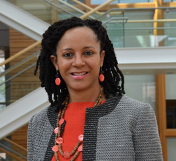
Dr. Anissa Vines is an assistant professor of research in epidemiology at the University of North Carolina at Chapel Hill Gillings School of Global Public Health, a research fellow at the Cecil G. Sheps Center for Health Services Research, co-director of the Inclusive Science Program in the NC TraCS Institute, and a member of the UNC Lineberger Comprehensive Cancer Center where she co-directs the Outreach Core of the U54 funded NCCU-UNC Lineberger Cancer Disparities Partnership and serves as Regional Coordinating Director of the National Cancer Institute funded Geographical Management of Cancer Health Disparities Programs (GMaP) for Region 1-South which contains North Carolina, South Carolina, and Tennessee.
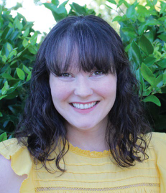
Katie Stinson is the Virtual Engagement Strategist for the NRMN Resource Center.
Katie completed both a Bachelors in Journalism with minors in English and Marketing and a Masters in Library and Information Science with an emphasis in Health Informatics at the University of North Texas. She is starting a PhD in Sociology at the University of North Texas in Fall 2019. Katie spent the first portion of her career working in advertising in the Dallas market before transitioning to health care to work in Graduate Medical Education at a Dallas community hospital.
As Virtual Engagement Strategist, Katie works to help manage recruitment, engagement, user support, and reporting of the NRMN’s virtual community, MyNRMN.
